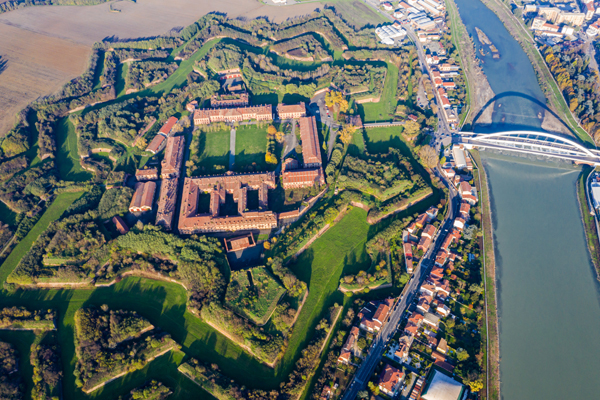
Piedmont, with its rolling hills, exquisite cuisine, and rich cultural heritage, has become a sought-after retirement destination for international retirees. Nestled at the foot of the Alps, this region offers a serene lifestyle amidst vineyards and historic towns. Retirees are drawn to Piedmont for its slower pace of life, affordable cost of living compared to other parts of Italy, and the high quality of healthcare. However, challenges such as navigating the residency process and learning a new language can be part of the adventure. The best things about retiring here include the close-knit community feel, access to world-class food and wine, and the stunning natural beauty of the area.
Understanding Living Costs
The cost of living in Piedmont is relatively low, especially when compared to Italy’s more tourist-heavy regions like Tuscany or Lombardy. Housing is affordable, with options ranging from renovated farmhouses to apartments in historic city centers. Daily expenses such as groceries and dining out are reasonable, with local markets offering fresh produce at competitive prices. However, retirees should budget for heating costs during the winter months, as temperatures can drop significantly.
Experiencing the Climate
Piedmont experiences a continental climate, with distinct seasons that each bring their own charm. Summers are warm and perfect for enjoying the many outdoor festivals and wine tastings. Autumn is a spectacular season when the vineyards turn a fiery red and the truffle season is in full swing. Winters can be cold and snowy, ideal for those who enjoy winter sports. Spring, with its mild weather, is a beautiful time for exploring the countryside and watching nature come back to life.
Healthcare Accessibility
Italy is known for its high standard of healthcare, and Piedmont is no exception. The region boasts several top-notch hospitals and clinics, with Turin being home to some of the best facilities in the country. International retirees can access these healthcare services, ensuring peace of mind when it comes to medical needs.
Public Healthcare Enrollment
International retirees can enroll in Italy’s public healthcare system, which provides comprehensive coverage at a relatively low cost. While some retirees opt for private insurance for quicker access to specialists, many find the public system more than adequate. The process of enrolling can be bureaucratic, so it’s advisable to seek assistance from local expat groups or a legal advisor.
Residency Options
Italy offers several residency options for retirees, including the elective residence visa, which is designed for those who can support themselves financially without working. This visa requires proof of sufficient income and a place to live in Italy. Once obtained, retirees can enjoy the benefits of living in this beautiful region full-time.
Outdoor and Cultural Pursuits
Piedmont is a haven for those who love the outdoors and cultural activities. The region is dotted with national parks, hiking trails, and lakes, providing ample opportunities for recreation. The cultural calendar is full of events, from the famous Alba White Truffle Festival to local wine harvest celebrations.
Local Dining Favorites
Retirees in Piedmont can indulge in some of Italy’s finest cuisine without breaking the bank. Restaurants like Osteria dell’Arco in Alba offer traditional Piedmontese dishes at reasonable prices. In Turin, Tre Galline serves up local specialties in a historic setting, while Ristorante Consorzio provides a modern twist on regional classics.
Language Learning Resources
Learning Italian can enhance the retirement experience in Piedmont. Language schools like the Italiano Porticando in Turin offer courses specifically designed for retirees. Additionally, many community centers and local universities provide language classes to help newcomers integrate into the community.
Engaging with the Community
The locals in Piedmont are known for their warmth and hospitality. International retirees often find it easy to integrate into the community through shared interests such as food, wine, and art. Weekly and daily markets, like those in Asti or Bra, are not only places to shop but also social hubs where retirees can meet and mingle with residents.
Meeting Fellow Retirees
Retirees can meet peers through various clubs and activities. Many towns have expat groups that organize social events, language exchanges, and cultural outings. Volunteering with local charities or participating in community events are also great ways to make connections.
Volunteer Opportunities
For those looking to give back, organizations like the Italian Red Cross or local animal shelters are always in need of volunteers. Engaging in such activities can be a fulfilling way to spend retirement while contributing to the community.
Housing Options
Retirees in Piedmont have a wide range of housing options. Many choose to live in the central city areas for convenience, while others prefer the tranquility of the countryside. Apartments in historic buildings are popular in cities like Turin, while renovated farmhouses are common in rural areas.
Transportation and Walkability
Depending on the location, retirees may or may not need a car. Larger cities like Turin have excellent public transportation systems and are very walkable. Smaller towns may require a car for convenience, although many retirees enjoy the slower pace of life that comes with walking and using local buses and trains.
Retiring in Piedmont, Italy, offers a blend of relaxation, cultural immersion, and the simple pleasures of Italian life. With its affordable cost of living, beautiful climate, and friendly locals, it’s no wonder that this region has become a favorite among international retirees seeking la dolce vita.

